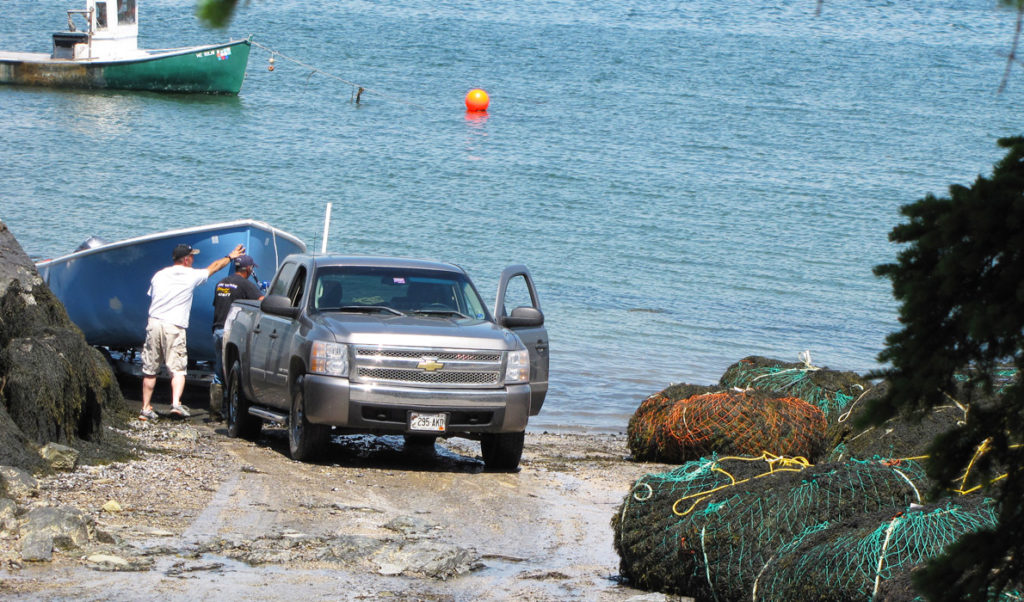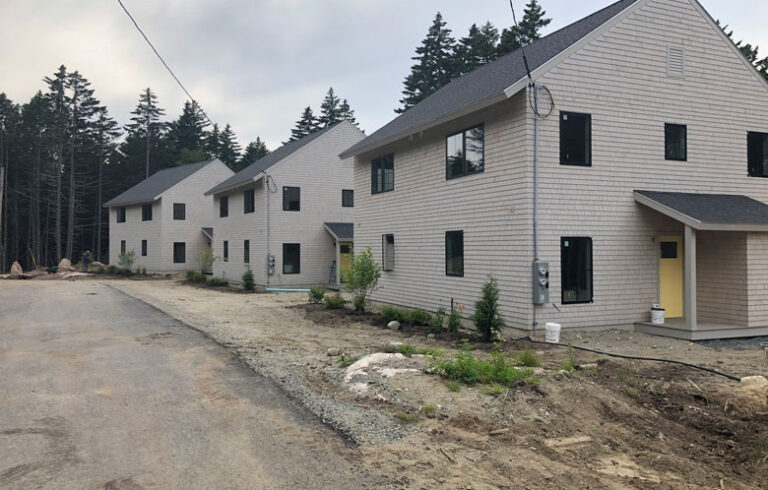By Merritt Carey, Sean Mahoney, Tim Glidden, and Shep Erhart
Lawsuits have a tendency to box parties in; they don’t allow for the nuances, complexities, and compromises that make up the realities of life, particularly life on Maine’s working waterfront.
A lawsuit filed by three landowners in Washington County in late 2015 sought to establish that rockweed (Ascophyllum nodosum) found in the area between low and high tide is owned by upland land owners, and not subject to the general exemption for all Mainers to “fish, fowl or navigate” in that intertidal area. The Washington County Superior Court found in favor of the landowners, but the rockweed harvesting industry appealed that decision to the Maine Supreme Judicial Court, where it is likely to be argued by the end of this year.
What is lost among the legal filings and the formality of court proceedings is the potential to find compromise and common ground. Recently, a small group from both “sides” of the issue sat down to begin planning a Seaweed Roundtable, which will bring a broader group of stakeholders together to collaboratively assess the potential for a path forward to sustainably harvest rockweed in Maine. We are thinking about sustainability in a holistic way—sustainability of coastal communities and economies, and the sustainability of natural resources and habitat.
Ultimately, we all want the same thing for Maine—robust working waterfronts, resilient coastal communities, and conservation of Maine’s natural resources. These goals are not mutually exclusive; indeed, they can and should be complementary.
This roundtable will provide a platform for different stakeholder groups to discuss ways to balance economic activity with conservation of key marine habitat and build stronger relationships and understanding between coastal communities, landowners, seaweed harvesters, state agencies, and conservation groups. The Seaweed Roundtable will not be a place for advocacy but will build relationships and understanding, to search for compromise and ultimately to achieve collective gain.
As envisioned, the roundtable will utilize NOAA’s ecosystem-based management framework and a professional mediator to facilitate the discussion.
Ecosystem-based management recognizes the full array of interactions within an ecosystem, including humans, rather than considering a single issue, species, or ecosystem service in isolation. Ecosystem-based management is an approach that works across sectors to manage species and habitats, economic activities, conflicting uses, and the sustainability of resources. In other words: compromise. This framework will allow for a balanced discussion that looks beyond the lawsuit and creates a plan for the future through collaboration and mutual understanding.
Our first planning meeting, held at The Nature Conservancy’s office in Brunswick, was informal and promising. It underscored the value of what we were attempting—that we could learn from each other and that there is common ground we could build from.
Of course, we’re in the very early days, and as we get down to the brass tacks of defining what we hope to achieve, and how we hope to achieve it, certainly there will be challenges and differences of opinion. Nevertheless, this initial planning will bear fruit later.
Trust is ultimately what will make the roundtable a success. We all understand there’s a lot at stake with the court case, but at the end of the day, we’re all committed to the future of Maine.
With the lawsuit, someone is going to win and someone is going to lose; the decision will be black and white. Beginning these discussions now, before the Law Court decision, can foster the trust among parties that may allow for progress towards our individual and collective goals after the decision is issued.
There’s nothing glorious about compromise; it typically doesn’t make headlines, it’s not righteous, and in fact, it’s a slog to achieve. But dialogue and constructive engagement are critical in our small state, where economic opportunities along the shore are increasingly limited and where natural resources need to be conserved.
Merritt Carey, Esq., is director of maine operations for Acadian Seaplants Ltd.; Sean Mahoney, Esq., is director of the Maine Conservation Law Foundation; Tim Glidden is presidentof Maine Coast Heritage Trust; and Shep Erhart is president of the Maine Seaweed Council.





